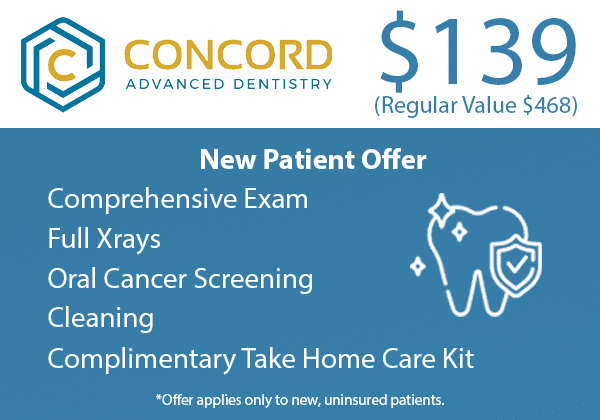Your dentist in Walnut Creek would agree that what we eat and the vitamins and minerals we get from our food or supplements can make a big difference in our oral health. Some of these vitamins and minerals can even help prevent things like mouth sores, tooth decay, and gum disease. So, let’s take a closer look at these essential nutrients and how they contribute to a healthier smile.

The Essential Vitamins for Dental Health
Vitamin A
Vitamin A helps in the development and maintenance of healthy gums. It plays a significant role in the formation of tooth enamel, which is the protective outer layer of your teeth. This vitamin also contributes to the overall health of the mucous membranes in your mouth. Good sources of vitamin A include sweet potatoes, carrots, spinach, kale, and liver.
Vitamin B Complex
The B vitamins, particularly B2 (riboflavin), B3 (niacin), and B12 prevent mouth sores and inflammation of the tongue, ensuring that your mouth remains healthy and comfortable. You can find B vitamins in foods such as whole grains, dairy products, lean meats, fish, and eggs.
Vitamin C
This vitamin is vital for the production of collagen, a protein that helps maintain the strength of your gums and other oral tissues. In addition to its role in gum health, vitamin C helps prevent gum disease and bleeding gums. It is abundantly present in citrus fruits like oranges, lemons, grapefruits, as well as strawberries, kiwi, and bell peppers.
Vitamin D
Vitamin D is essential for calcium absorption in your body, which is necessary for healthy teeth and bones. This vitamin plays a significant role in preventing tooth decay and gum disease. While sunlight exposure is a natural source of vitamin D, you can also obtain it from fatty fish like salmon and mackerel, fortified dairy products, and supplements.
Vitamin E
Vitamin E has anti-inflammatory properties that can help protect your gums and reduce the risk of periodontal disease. It is commonly found in nuts like almonds and hazelnuts, seeds, as well as leafy greens and broccoli.
Calcium
Calcium is perhaps one of the most well-known minerals for promoting strong teeth and bones. It is essential for maintaining the integrity of tooth enamel. Dairy products like milk, yogurt, and cheese are excellent sources of calcium, as are leafy greens, fortified plant-based milk, and various nuts.
Do I Need to Take Supplements for These Vitamins?
In most cases, a well-balanced diet that includes a variety of foods rich in essential vitamins should provide you with the nutrients you need for excellent dental health. However, there are situations where supplements may be necessary or beneficial. Let’s explore when supplements might be considered:
- Vitamin Deficiencies: People who are diagnosed with specific vitamin deficiencies, such as a vitamin D deficiency, may be advised by their healthcare provider to take supplements to correct the deficiency and maintain good dental health.
- Medical Conditions: Certain medical conditions can affect your body’s ability to absorb or utilize vitamins. For example, people with gastrointestinal issues may have difficulty absorbing vitamin B12. In these cases, supplements can be prescribed to address the deficiency.
- Lifestyle Choices: If your lifestyle choices, such as avoiding sun exposure (a source of vitamin D) or being a very picky eater, limit your intake of essential vitamins, supplements may be recommended to ensure you get adequate nutrition.

Looking for a Dentist in Walnut Creek?
Schedule your appointment today at Concord Advanced Dentistry and experience the exceptional care provided by our dedicated team of dentists. We look forward to helping you achieve your best smile and overall oral health.


